From a keen interest in VK Sasikala’s relationship with late Chief Minister J Jayalalithaa to assumptions based on a lack of medical expertise to poor record keeping, the Arumughaswamy Commission seems to be a mere fishing expedition
By Sandhya Ravishankar
War has broken out now. On one side is the Arumughaswamy Commission probing the hospitalisation and death of late Tamil Nadu Chief Minister J Jayalalithaa. On another is the hospital that treated her – Apollo Hospital. And now two more people have been dragged into the melee – Tamil Nadu Health Secretary J Radhakrishnan and former Chief Secretary P Rama Mohana Rao.
Counsel for the Commission filed a petition on 27 December claiming that Health Secretary Radhakrishnan’s testimony was “suggestive of conspiracy and collusion between the health secretary and Apollo Hospital with regard to the inappropriate treatment of late chief minister.”
On 29 December Apollo Hospitals hotly refuted the various charges in the petition and hit back at the Commission for “ignoring material evidence” and making “serious allegations” against a doctor and the hospital based on “incorrect recording and non-appreciation and understanding of medical evidence” by the Commission. The allegation of “collusion” was denied stating that it was “completely baseless and misplaced”.
Radhakrishnan, a senior and well respected IAS officer, issued a denial as well to the Press Trust of India. He called the allegations by the Commission’s counsel “unfounded, baseless and wild.” He is scheduled to continue his deposition before the Commission on January 04.
So what actually is going on behind the closed doors of the Arumughaswamy Commission?
The Lede has read through the majority of the recorded depositions of witnesses available with the Arumughaswamy Commission. Where conflicting and/or confusing testimonies have arisen, The Lede has cross-verified the facts with multiple sources who were present at the proceedings of the Commission in which neither the press nor the public is allowed.
At this crucial juncture in the hearings, The Lede presents to you the 6 faces of the Arumughaswamy Commission. Here are the facts.
Face 1: Hello ‘Doctor’!
On 28 December, a petition was filed by Apollo Hospital before the Commission asking for a panel of medical experts to be set up so that their “30 volumes of medical records that include 15 CDs of Echo Cardiogram and multiple X-Rays, printout of ECGs biochemistry and microbiology reports, ECMO monitoring charts and several medical reports, relating to the treatment of the late CM” may be understood and decoded by experts in their respective fields.
The request is a sound one.
The Arumughaswamy Commission had, in April 2018, received permission from the State government to set up a panel of doctors. But it could not find doctors willing to be on the panel.
As a result, retired Judge Arumughaswamy turned to medical textbooks in a bid to make sense of the complexities of Jayalalithaa’s medical conditions that culminated in her demise.
‘Doctor’ Arumughaswamy’s key text appears to be the European Society of Cardiology’s Guidelines 2015, an internationally recognised handbook for cardiologists treating patients with a variety of diseases occurring along with heart ailments.
His contention is that the team of cardiologists at Apollo Hospital failed to follow the ESC Guidelines 2015, Page 3100 wherein it is stated – “Surgery must be performed on an emergency basis, irrespective of the status of infection.”
Padma Shri awardee and senior cardiologist Dr Nitish Naik of AIIMS in New Delhi, Padma Bhushan awardee cardio-thoracic surgeon Dr R Girinath, senior pulmonologist Dr Babu Abraham, senior cardiologist Dr KM Cherian of Madras Medical Mission, cardiologist Dr Stuart Russel of Johns Hopkins, Baltimore, UK-based intensivist Dr Richard Beale, cardiologist LF Sridhar of Apollo Hospitals had all concurred that Jayalalithaa’s heart condition – a 14 mm vegetation in her heart and a small perforation and leak in her mitral valve – did not require surgery.
Jayalalithaa appears to have had the mild mitral valve leak since 2015 itself – a condition that doctors have described as Grade 1 Diastolic Dysfunction. She was told by doctors in Apollo Hospital at the time that she did not require treatment for the same, except for minor diet control.
All of the various experts examined by the Commission have clearly stated the reasons for not doing the angiogram:
- Asked by the Commission – “Is it not necessary for a patient who is having more than 10 m.m. vegetation in the mitral valve has not cleared even after 6 weeks medication, one need not to undergo surgery?” The answer – “I say that it is not necessary. According to me, mitral valve regurgitation was mild.” – Dr Nitish Naik, Padma Shri awardee, senior cardiologist, AIIMS, New Delhi.
- “Since ARDS (Acute Respiratory Distress Syndrome) was present, mortality would have gone up to 80 to 90%” – Dr R Girinath, Padma Bhushan awardee and senior cardio-thoracic surgeon told the Commission on 07 December 2018. In other words, Jayalalithaa’s lungs could have ceased to function if put on a heart-lung machine which is necessary for such a procedure.
- “If there is a 14 mm vegetation in the heart and if it is flat, it will not burst and fragment. But if it is like a nail (protrusion), it can break into fragments… the vegetation in the late Chief Minister’s heart was flat.” — Dr R Girinath, Padma Bhushan awardee and senior cardio-thoracic surgeon told the Commission on 07 December 2018.
Only one US-based cardiologist Dr Samin K Sharma of Mount Sinai Hospital had stated that he would perform an angiogram the same day on the late Chief Minister. This was on 25 November 2016.
In fact, the deposition of Dr N Ramakrishnan, Director of Critical Care Services in Apollo Hospital recorded by the Commission on 19 November states – “Dr Shamir (sic) Sharma, US doctor, held discussions with the Apollo medical team. At that time, Dr Shamir (sic) Sharma said that at some point, an angiogram had to be done and that he was ready to do the same that day itself.”
In other words, Dr Samin K Sharma, the doctor who was available for a single day with the medical team treating the late Chief Minister, only volunteered to perform the procedure since he was there and would fly out to the US the next day.
Apart from not being able to understand that Jayalalithaa’s lungs and blood had an enterococcus bacterial infection that caused fluid accumulation in her lungs restricting her ability to breathe on her own, the judge-turned-doctor also appears unable to comprehend that this condition known as ARDS needed immediate attention rather than her heart, according to all 18 doctors, the team of AIIMS doctors numbering 6 and 12 specialists from outside Apollo and India.
Apart from matters of the heart, the good ‘doctor’-judge also appears to be insistent that he knew exactly what a patient afflicted with Jayalalithaa’s condition should eat. Not just that, he appears to insist on what Jayalalithaa actually ate while she was hospitalised, although he was not present there himself.
In the testimony of Dr Bhuvaneswari Shankar, Dietician at Apollo Hospitals who drew up Jayalalithaa’s food chart based on her condition, recorded on 24 July 2018, the specialist states that upon discussion with the doctors treating the late Chief Minister, the calorie intake was limited to 1600. Low fat and normal diet was recommended.
The Commission asked her whether the late Chief Minister was given sweets twice during her hospitalisation along with bananas, seedless grapes and mangoes. “It was in a very small quantity,” responds Dr Bhuvaneshwari.
The Commission asked – “The above mentioned fruits contain sugar and potassium.”
The witness says – “That is incorrect. The quantity consumed by Amma was very tiny and therefore there was nothing wrong in this.”
The Commission says – “You have given Amma food that was not good for her and only tried to satisfy her and this affected her treatment.”
The witness responds – “We have given food only after consultation with doctors.”
The judge also asks Dr Bhuvaneswari – “…khichdi, 180 ml of tender coconut water, cut apples, grapes, potato finger chips; during tea time – curd rice, cut apples, icecream; at night – curd rice, potato fry was given” to Jayalalithaa but that the doctor only claims that this food amounted to 1200 calories.
Dr Bhuvaneshwari clarified that it was only a cup of fried potatoes, one spoon of pista and vanilla icecream at different times, 4 spoons of banana at night among other similar quantities of food.
The ‘doctor’-judge was not convinced.
Apollo Hospital counsel Maimoona Badsha asked the dietician – “Apart from a Doctor or a Nutritionist or a qualified Dietician, can a Lay-person interpret and understand the reasoning behind a Diet that has been planned and administered to a patient?”
The witness responded: “No.”
On re-examination of the same witness on 27 September 2018, Dr Bhuvaneshwari submitted the Critical Care Unit Guidelines published by the American Society for Parenteral and Enteral Nutrition (A.S.P.E.N.) that detail how many calories must be given to patients suffering various afflictions. The ‘doctor’-judge stated without any evidence or background to his query – “These guidelines do not answer the questions put forth by the Commission.” The witness responded – “That is incorrect.”
These are only a few examples. “Doctor” Arumughaswamy has continued along this vein with all other doctors who have testified so far before the Commission. He has even accused a number of doctors of lying and has attempted to prove that his knowledge of cardiology and pulmonology is superior to that of those who have decades of specialised experience in the field.
“The aid of a medical expert is indispensable,” Vikram Hegde, lawyer practicing at the Supreme Court told The Lede. “The sharpest of minds can’t be a substitute for knowledge gained from years of medical practice. Courts have repeatedly held that in such matters the opinion of the medical experts should be given due consideration. At the very least, the commission should be aided by medical experts of relevant qualification.”
Face 2: Can ‘Badger’!
Almost every witness, save a handful, has come away from testifying before the Commission, with a distinct impression of having been “attacked” and “badgered” needlessly.
For instance while conducting the examination of ECMO specialist Dr Madan Kumar on 29 November 2018, the Commission decided to verify the credentials of the witness’ colleagues.
Commission: “Are Dr Narasimhan and Dr Ramesh Venkatraman good doctors?”
Witness responds: “I do not know. I have not heard any negative remarks about them professionally.”
Commission: “Doesn’t Apollo recruit doctors who do not know their jobs?”
Witness responds: “As far as I am aware, such a thing has not happened.”
Commission: “In order to justify putting Amma on ECMO, you are stating that she had eyeball movement, that she gagged, that there was a heart rhythm.”
Witness responds: “That is wrong.”
At times, the retired judge got more than he had bargained for in terms of witness responses.
Take for instance the deposition of Jayalalithaa’s former secretary Poongundran. During his testimony on 04 July 2018, the Commission records – “There have been reports in newspapers that when Amma was alive and in power, she beat up an auditor, and also a High Court advocate KM Vijayan and that she had hurled acid on the face of IAS officer Chandralekha – during that time did anyone close to Amma or those who admired Amma file any defamation suits against those publications? When asked this the witness says he does not know. Witness asks why these questions now that Amma is no more?”
More questioning occurs but Poongundran does not back down. “If you ask me how, when Amma was alive, the seller of the Kodanadu and Siruthavoor houses had made allegations – I do not know.
Commission: But these allegations were made while she was alive itself – I do not know.”
Face 3: I ‘Spy’!
The Commission has also floated several conspiracy theories on its own without having any evidence to back up the same.
These vary from “slow poisoning” of the late Chief Minister to doctors deliberately allowing her to die and to fishing for negative testimony on Sasikala’s alleged “influence” over Jayalalithaa.
Some interesting anecdotes can be found in the following depositions.
In the testimonies of Apollo Hospital doctors Senthil and Raymond, the judge asks a conspiracy-laden question about whether there was any trace of “slow poison” in the blood of the late Chief Minister apart from the bacterial infection. Both reply in the negative.
The retired judge asks Dr R Girinath, senior cardio-thoracic surgeon in his deposition on 07 December 2018 – “Even though Amma had vegetation and perforation, despite her being continuously on ventilation and oxygen, you decided that doing an angio would further complicate her condition and because you did not even do the angio, you decided to let her die?
Witness responds – If we had put Amma on a heart-lung machine to do the angio, her lungs would have ‘consolidated’ and we would not have been able to revive it.”
As for implications of Sasikala’s alleged influence over Jayalalithaa, the Commission asked a childhood friend and former AIADMK MLA Bader Sayeed on 25 May 2018 — “You say that you were unable to see the Chief Minister after 2011, did anyone come between your friendship?
Witness says – God alone knows.”
On 23 August 2018, the Commission examined the team lead of the six-member medical team from AIIMS that had monitored Jayalalithaa’s treatment.
The judge attempted to get team lead Dr GC Khilnani, Head of Pulmonology, AIIMS to trip himself up with a trick question — “Though the late Hon’ble CM’s heart function stopped on 04.12.2016, the Apollo Hospital Management called you all the way from New Delhi to authenticate the death of the late Hon’ble CM?”
Why is this a trick question? Because the Chief Minister’s heart function actually stopped on 05 December 2016 as per medical records as well as the official death certificate.
Khilnani responded — “I have not given any declaration of death of the late Hon’ble CM. We have been asked by the authorities concerned at Delhi to rush to Chennai, we came here to assist and do the needful to the patient.”
Sadly, the conspiracy theories have not flown so far.
Face 4: ‘Poor Record-Keeper’
The recorded depositions of the close to 150 witnesses examined so far are a nightmare to wade through.
There are no records of questions asked and answers given. Medical terms are recorded incorrectly – for instance the ‘enterococcus bacteria’ is recorded in a variety of flavours by the Commission. It goes from ‘endrocacnus’ to ‘endococcus’ in various depositions.
VAP (Ventilator Associated Pneumonia) becomes VIP in Dr Babu Abraham’s deposition. A.S.P.N (as detailed earlier) becomes A.S.P in Dr Bhuvaneswari’s testimony.
As the Apollo Hospital’s objection to the petition by the Commission’s counsel details, the Commission has in fact recorded the time taken to conduct a sternotomy on a patient as 20-30 minutes, rather than 20-30 seconds as corrected by Dr Madan Kumar in pencil on the record.
The deposition recorded by the Commission, in which the doctor describes the CPR-sternotomy procedure, reads – “We will stop the heart massage for 5-10 seconds, we will stop for 15-20 seconds. Further the witness says, we will give massage for 20-30 seconds, we will do sternotomy for 5-10 seconds and leave it, and again massage for 25-30 seconds.”
The doctor has corrected the statement as follows in pencil – “We will stop the heart massage for 5-10 seconds, conduct the surgery for sternotomy in 15-20 seconds, then continue the massage. Further the witness says, we will give massage for 20-30 seconds, in this manner we will keep alternating the process. We will do sternotomy for 5-10 seconds and leave it, and again massage for 25-30 seconds.”
But as Apollo Hospital’s statement says in the earlier part of the doctor’s deposition – “The Commission wrongly recorded seconds as minutes. Right then, Dr Madan Kumar corrected the Commission and clarified that it was not minutes but seconds. However, the correction was not carried out. Dr Madan Kumar refused to sign the deposition but the Commission would not delete this incorrect sentence.”
These exchanges between the doctor and the Commission have not been recorded.
Further, a large number of errors appear to have crept into the records since much has been lost in translation from testimonies made in English which are noted in Tamil. Even those who have deposed in English before the Commission have had their testimonies twisted beyond recognition.
For instance on 20 December 2017, the Commission poses an unrecorded question to former Special Advisor to the Tamil Nadu government Sheela Balakrishnan to which she responds – “In the Secretariat we never talked about her unborn sister.”
One can only presume that the ‘unborn sister’ is VK Sasikala.
In a very curious record, Sheela Balakrishnan is also quoted as stating – “Actually these was thread to Chief Minister from L.T.T.E. Apollo hospital is a very big hospital. Different kind of treatment are available from blood test to heart transplant. I fed normally five hundred to six hundred persons were treated there.”
The meaning of this portion of her statement continues to remain a mystery.
The Background of The Commission
When late Chief Minister J Jayalalithaa’s body lay in state at the Rajaji Hall in Chennai on 06 December 2016, thousands of her fans descended to pay their last respects to a beloved leader. Women especially, her core electorate, wailed and beat their chests in grief, their anger at the unexpected demise of the 67 year old Chief Minister just a day earlier, directed at her close friend and confidante VK Sasikala who stood stoically next to the body.
Gauging the public mood and perhaps smarting at having been asked to step down as Jayalalithaa’s successor Chief Minister, O Panneerselvam meditated for about 40 minutes at Jayalalithaa’s memorial in February 2017. Following this, he pointed the finger of suspicion at Sasikala for Jayalalithaa’s sudden demise.
Many political wrangles later, OPS, as Panneerselvam is called, and the current Chief Minister of Tamil Nadu, Edappadi Palanisamy (called EPS) joined hands in August 2017. OPS was brought back in from the cold and became Deputy Chief Minister. Sasikala and her nephew TTV Dhinakaran became the objects of ire instead and as a result of the handshake between EPS and OPS, a Commission of Inquiry was set up on 25 September, 2017 to probe Jayalalithaa’s death. The Commission is headed by retired judge Arumughaswamy and its first sitting was on 27 October 2017.
The Commission has two terms of reference:
- “To inquire into the circumstances leading to Jayalalithaa’s hospitalisation on September 22, 2016”
- “Treatment provided till her death on December 5, 2016”
The Commission has received extensions from the State government in December 2017, June 2018 and October 2018. Close to 150 witnesses have been examined and ministers and officials are in the pipeline.
Face 5: The “Fisherman”!
The retired judge also seems to be on a fishing expedition, well beyond the scope of the terms of reference of the Commission. This is evident from the testimonies of the following witnesses.
Two officers of the Indian Overseas Bank were quizzed over an education loan given by the bank to Vivek Jayaraman, son of Ilavarasi and nephew of Sasikala way back in 2007 when he went abroad for higher studies in Sydney.
Leela Selva Kumari, currently employed with the SIET branch of IOB, Chennai was asked about this loan on 30 April 2018– “On 11.06.2007, an education loan of amount Rs 20 lakh was given to one Vivek Jayaraman. The repayment of Rs 28,56,986 was completed by 19.01.2012…. I am not aware about this loan or who repaid this loan.”
Once again the Commission obsesses over the loan, for reasons best known to the retired judge. On 04 May 2018, a retired IOB manager Mahalakshmi was once again quizzed on the subject – “Sasikala had a deposit of Rs 25 lakh with the bank and she took an education loan against the deposit. She had submitted a proper letter from the university where the student had got admission in order to obtain the loan. The principal and interest was paid from Sasikala’s account and the Chief Minister had no connection with this bank account.”
There are many other such instances of questions being posed clearly outside of the terms of reference.
IAS officer Ramalingam who deposed before the Commission on 17 April 2018 had this to say, in response to a question posed by the Commission which is not recorded – “When I was in Garden if Amma called me, I would have to go and brief her. Chief Minister used to give me instructions through the intercom.”
Jayalalithaa’s cook Rajammal was asked about the late Chief Minister’s favourite food on 20 February 2018 – “The Chief Minister will have breakfast by 8 am. She would eat idli and bread with jam. She will eat ordinary meals for lunch. She enjoyed tomato, coconut and paruppu rice very much. She would tell me beforehand what she wanted. In the evening she would have bread and coffee. At night she would eat idiyappam or idli.”
On 13 June 2018, former Chennai City Commissioner of Police S George deposed before the Commission. He answered another strange query – “There were reports in newspapers that you were suddenly removed as Chennai City Police Commissioner in 2015 due to the fact that you attended a football match at the Nehru Stadium in which one of the sons of Mukesh Ambani, Rajinikanth and Amitabh Bacchan had participated. It is reported that you did not inform the Chief Minister about your presence there, nor that of the other guests at the event and this was the reason for your transfer. Witness says – I do not know but I was transferred in the second week of October.”
On 21 June 2018 Vivek Jayaraman too was asked about unconnected events well before Jayalalithaa’s death. “As far as I know Deepa and Deepak did not visit Garden. Chief Minister has also not called or spoken to Deepa or Deepak. I saw the Chief Minister get angry when Sasikala suggested that Deepak’s marriage be arranged. Deepak’s claim that he got birthday gifts and visited Garden at that time is wrong.”
Senior Chennai based lawyer KM Vijayan told The Lede that any Commission must stick to its terms of reference. “The crux of the matter is the circumstances leading to the hospitalisation and post-hospitalisation of the late Chief Minister. So whatever search or questioning relating to that, which will lead to terms of reference will be relevant. Others are redundant,” he said.
Supreme Court lawyer Hegde too agreed. “From what is being said of the enquiry, it does appear that the Commission is entering into several areas which are not strictly within the terms of reference which is fairly limited. However, we may not know what angle is being worked on till the enquiry is complete. We do not know at this stage the mind of the Commission. However it should keep to terms of reference,” he stated.
Face 6: ‘Gossip’!
The Commission was also vastly interested in speculation about the relationship between VK Sasikala and Jayalalithaa, especially during the period of 2011 when Sasikala was thrown out of the latter’s Poes Garden residence, only to return three months later. These events of course took place five years before Jayalalithaa fell ill and was hospitalised.
Here are some parts of various witness depositions which show clearly how keen the Commission was to get to know what made Sasikala tick in Jaya’s household.
On 21 December 2017, former Chief Secretary P Rama Mohana Rao responded to an unrecorded question from the Commission. “I have seen Sasikala with Chief Minister at Chief Minister’s house when I have gone there officially often.”
On 04 July 2018, KT Karthikeyan, office staff at Poes Garden was asked – “When asked about whether Sasikala sidelined Poongundran after a lot of wealth was found in his house during IT raids, the witness says that is not true.”
Mahalakshmi, retired IOB manager stated in response to an unrecorded query – “Sasikala presented a Mitsubishi Montero car to the Chief Minister for her birthday and the loan for that was taken from our bank and also repaid. Similarly the Chief Minister, on August 18, which was Sasikala’s birthday presented her with a car. That loan too was taken from our bank and repaid.”
Ilavarasi’s daughter and Sasikala’s niece Krishnapriya deposed before the Commission on 02 January 2018 – “As far as I am concerned I have never seen Sasikala and her husband Natarajan spoken each other directly. When we were young Sasikala never prevented us from visiting uncle Natarajan’s house. This was upto 1996.”
And on 08 January 2018, Dr K Sivakumar, nephew of Sasikala who was also Jayalalithaa’s doctor was asked to explain one branch of the Mannargudi family – “I got married on 18.10.1991 in Thanjavur. The Chief Minister presided over my wedding. Mr Sundaravadanam is my father in law, he is Sasikala’s elder brother. Sasikala has four male siblings and one female sibling. Sasikala’s own siblings are Sundaravadanam, Dr Vinodhagan, Vanithamani and after Sasikala, Jayaraman and Divakar. Dr Vinodhagan is a general surgeon. He passed away around 1993. He was not in a government job. He had two sons and a daughter – Mahadevan, Thangamani and daughter Subashree. Mahadevan died of a heart attack in 2017. Of his two daughters, one is studying medicine and the other is in school. Thangamani is a businessman and I do know him well. Subashree is a homemaker and her husband Bhaskar is 55 years old. I know him, he is related but we are not close. I really do not know what business Bhaskar is into.”
Senior advocate practicing at the Madras High Court KM Vijayan said – “Facts relating to wealth and relationship of Sasikala are good for sensational magazines but have no bearing on the Commission.”
A Waste Of Public Money?
In the midst of all the confusion and chaos, the political drama surrounding the Arumughaswamy Commission has intensified. Law Minister C Ve Shanmugham spoke to the media on 31 December demanding that Health Secretary J Radhakrishnan be “interrogated” even before his deposition before the Commission is complete.
It has been over one year since the Arumughaswamy Commission began its hearings and apart from the aforementioned accusations from the retired judge, not much has actually surfaced in the form of concrete evidence to show any wrongdoings or murkiness in the manner in which Jayalalithaa fell ill and died. The “he said-she said” debate continues with the retired judge breathing fire and brimstone. But without medical expert opinions and proper documentation, this Commission too is heading towards being a colossal waste of taxpayer money.
“This is a complaint often received about Commissions of Inquiry,” said Supreme Court lawyer Vikram Hegde. “There is no legal bar on extensions. However, it is for the Commission to return a finding on the questions referred at the earliest especially in light of the fact that more than a year has elapsed without any end in sight.”
Senior advocate Vijayan is sceptical about the outcome of the Commission. “The formation of the Commission itself is to create irrelevant paperwork, to soft-pedal criminals, if any, who are associated with and abetted Jayalalithaa’s death. The government and people who have basic knowledge of the law know this,” he said.
“If Jayalalithaa’s death is deemed suspicious, what is needed is a criminal investigation and not an enquiry by a Commission. Ultimately God only knows whether the truth is going to be the end result,” he added.

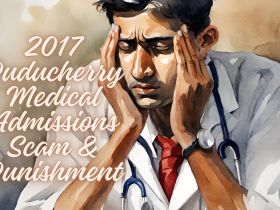
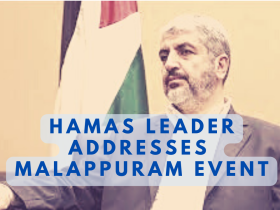
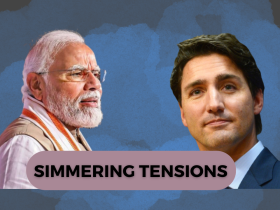
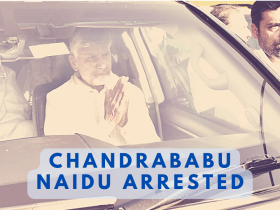
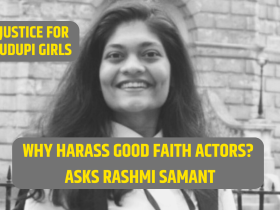
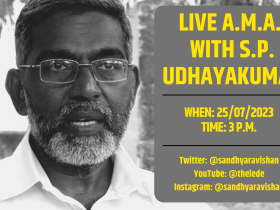


Leave a Reply